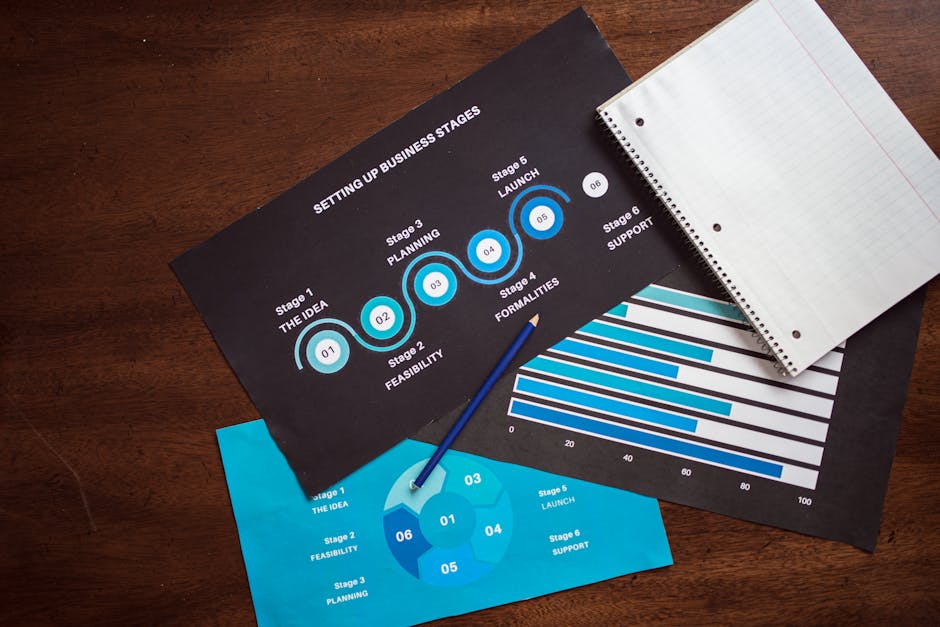Personal Development: Key Steps You Need
Personal development is a journey that unfolds over time, allowing you to enhance various aspects of your life. Whether you aim to improve your career, relationships, or self-image, understanding personal development: key steps you need is essential for your success. In this article, we will explore crucial steps that will guide you in your personal growth journey. Keep reading to discover how you can take actionable steps toward becoming the best version of yourself.
Understanding Personal Development: Key Steps You Need
To embark on your personal growth journey, you first need to grasp what personal development truly means. It involves investing in one’s own growth through self-awareness, education, and goal-setting. Below are key elements to consider:
- Self-Assessment: Understand your strengths, weaknesses, and areas for improvement.
- Setting Goals: Establish clear, achievable goals that align with your vision for personal development.
- Continuous Learning: Commit to lifelong learning, whether through formal education, reading, or skill development.
- Seeking Feedback: Regularly seek constructive criticism from peers and mentors to guide your growth.
- Building Confidence: Engage in activities that boost your self-esteem and help you take risks without fear of failure.

Creating a Personal Development Plan
Once you understand the core principles of personal development: key steps you need, it’s important to create a structured plan. A well-defined personal development plan can motivate and guide you on your journey. Here’s how to get started:
- Identify Your Purpose: Clearly define what you want to achieve in your personal and professional life.
- Set SMART Goals: Ensure your goals are Specific, Measurable, Achievable, Relevant, and Time-bound.
- Allocate Resources: Determine what resources you need, including time, finances, or learning materials.
- Track Your Progress: Regularly review your goals and measure your progress to stay on track.
- Adjust as Needed: Be flexible and ready to modify your plan based on your experiences and new insights.
By following a structured approach, you can effectively navigate the complexities of personal development, ensuring you remain focused on your goals.

Overcoming Challenges in Personal Development
Every journey has its obstacles, and personal development is no exception. Understanding the potential challenges you may face can prepare you to handle them effectively:
- Lack of Motivation: Stay engaged by remembering your purpose and celebrating small wins.
- Fear of Change: Embrace discomfort as a natural part of growth. Gradually step out of your comfort zone.
- Negative Influences: Surround yourself with supportive people who uplift your ambitions and goals.
By acknowledging these challenges, you can develop strategies to overcome them, keeping you aligned with the personal development: key steps you need.
Personal development is not a one-time event but a lifelong process of learning, growth, and self-improvement. By establishing a clear plan, setting goals, and being prepared for challenges, you can significantly enhance your quality of life. Start today by taking the first step towards your personal growth and embracing all that life has to offer. Explore learning opportunities, connect with like-minded individuals, and invest in yourself; the journey of personal development is rewarding and transformative.
Personal Development: Key Steps to Self-Awareness
In the journey of personal development, achieving self-awareness is one of the most vital steps. Understanding oneself allows for greater clarity in decision-making, fosters healthier relationships, and enhances overall well-being. In this article, we will explore personal development: key steps to self-awareness, guiding you towards a more profound understanding of who you truly are.
Understanding Personal Development: Key Steps to Self-Awareness
Self-awareness is the foundation of personal development. It involves recognizing your emotions, strengths, weaknesses, values, and beliefs. By focusing on self-awareness, you can identify areas in your life that require change and growth. The following are key steps to self-awareness:
- Reflect Daily: Setting aside time each day to reflect on your thoughts and feelings can help you become more aware of your internal processes.
- Keep a Journal: Writing down your experiences and emotions enables you to understand your reactions and thought patterns.
- Seek Feedback: Actively requesting feedback from friends, family, or colleagues can provide different perspectives on your behavior and thereby enhance your self-awareness.
- Practice Mindfulness: Engaging in mindfulness exercises, such as meditation or deep breathing, can help you become more in tune with your inner self.

Implementing Strategies for Personal Development: Key Steps to Self-Awareness
To effectively boost your self-awareness, it’s important to implement specific strategies in your daily life. Here are some effective approaches:
- Set Intentions: Start each day by setting intentions that align with your personal goals and values.
- Challenge Negative Thoughts: Acknowledge negative self-talk and learn to reframe those thoughts positively.
- Engage in Self-Assessment: Evaluate your personal and professional goals regularly to ensure they reflect your true self.
By incorporating these strategies into your routine, you can significantly enhance your self-awareness, which is a crucial aspect of personal development.

The Benefits of Personal Development: Key Steps to Self-Awareness
Understanding the benefits of becoming more self-aware can motivate you to take these essential steps. Here are a few advantages that come from personal development: key steps to self-awareness:
- Improved Decision Making: With greater clarity about your values and emotions, you will make more informed choices.
- Enhanced Relationships: Self-awareness allows you to understand how your actions affect others, fostering better communication and bonds.
- Increased Emotional Intelligence: Recognizing your emotions enhances your ability to manage them effectively.
These benefits illustrate why personal development: key steps to self-awareness should be a priority in your life.
In your personal growth journey, focusing on self-awareness is indispensable. By following the key steps outlined in this article, you can deepen your understanding of yourself, improve your relationships, and lead a more fulfilling life. Delve into your personal development journey today and discover the profound impact self-awareness can have on your well-being. Embrace the process, and take decisive action towards becoming the best version of yourself.
Personal Development: Key Steps for Setting Goals
Setting goals is a fundamental aspect of personal development that can dramatically enhance your life. Personal development: key steps for setting goals not only help you clarify your vision but also keep you motivated and accountable. In this article, we will explore essential strategies for effective goal setting that can propel your journey toward self-improvement and success.
Understanding the Importance of Personal Development: Key Steps for Setting Goals
Personal development is a lifelong journey that fosters peace, happiness, and fulfillment. Understanding the importance of setting goals is crucial in this journey. Goals act as a map, guiding you to where you want to be and helping you focus your efforts. Here are some key reasons why setting goals is vital for personal development:
- Clarity: Goals help clarify your intentions and aspirations.
- Motivation: A well-defined goal can fuel your determination and drive.
- Measurable Progress: Setting milestones allows you to track your advancement effectively.
- Accountability: Goals create a sense of responsibility toward your growth.

Steps for Personal Development: Key Steps for Setting Goals Successfully
To harness the power of goal setting for your personal development, consider implementing the following steps:
- Define Your Goals: Write down exactly what you want to achieve. This clarity is essential for your personal development journey.
- Set SMART Goals: Use the SMART criteria—Specific, Measurable, Achievable, Relevant, and Time-bound—to ensure that your goals are realistic and attainable.
- Break it Down: Divide your main goals into smaller, manageable tasks. This approach reduces overwhelm and keeps you motivated.
- Establish a Timeline: Create a timeline for your goals to foster a sense of urgency and commitment.
- Reflect and Adjust: Regularly review your goals and make necessary adjustments based on your progress and experiences.
By following these steps, you can create a structured approach that enhances your personal development journey through effective goal setting.

Overcoming Challenges in Personal Development: Key Steps for Setting Goals
While setting goals is essential for personal development, you may encounter obstacles along the way. Here are some common challenges and tips on how to overcome them:
- Procrastination: Combat procrastination by breaking tasks into smaller steps and setting deadlines.
- Lack of Motivation: Remind yourself of your ‘why’—the reasons driving your personal development journey.
- Fear of Failure: Embrace failure as a learning opportunity rather than a setback. Each challenge helps you grow.
Recognizing and addressing these challenges will make your goal-setting process more effective and enrich your personal development experience.
By employing the strategies outlined here, you can effectively set goals that pave the way for significant personal growth. Remember, personal development: key steps for setting goals involves not just planning but also consistent action and reflection. Take the first step today, and start setting the goals that will ultimately transform your life.
Personal Development: Key Steps in Building Resilience
In today’s fast-paced and ever-changing world, personal development is crucial for enhancing one’s mental strength and adaptability. One of the most important aspects of personal development is resilience. Understanding the key steps in building resilience can significantly empower individuals to face challenges and overcome obstacles. This article will explore effective techniques for fostering resilience through personal development, ensuring you’re better prepared for life’s inevitable setbacks.
Understanding Resilience and Its Importance in Personal Development
Resilience is often defined as the ability to bounce back from adversity. It’s a critical component of personal development that allows individuals to thrive amidst difficulties. By enhancing resilience, you not only improve your ability to manage stress but also boost your overall emotional well-being. People who are resilient tend to experience lower levels of anxiety and depression, leading to more fulfilling lives. Here are some key attributes that define resilient individuals:
- Emotional Awareness: Understanding and managing your emotions.
- Optimism: Maintaining a positive outlook, even in hard times.
- Flexibility: Adapting to changing circumstances with ease.
- Problem-Solving Skills: Effectively addressing challenges to find solutions.

Key Steps in Building Resilience Through Personal Development
Building resilience is not a one-time effort but a continuous journey in personal development. Here are some effective steps to enhance your resilience:
- Practice Self-Care: Prioritize your physical and mental health through regular exercise, a balanced diet, and adequate sleep.
- Seek Support: Surround yourself with a strong support network of friends, family, or mentors who can provide encouragement and guidance.
- Set Realistic Goals: Break down your objectives into achievable steps to avoid feeling overwhelmed and track your progress.
- Embrace Change: Accept that change is a part of life and approach it with a flexible mindset.
- Stay Positive: Cultivate an optimistic outlook by focusing on your strengths and past successes.
By implementing these key steps in building resilience, you can strengthen your capacity to face challenges head-on. Consistent application of these techniques leads to growth in both personal and professional spheres, making resilience an essential aspect of personal development.

The Role of Mindset in Personal Development and Resilience
Adopting a growth mindset is essential when focusing on personal development: key steps in building resilience. A growth mindset means believing that your abilities and intelligence can be developed with effort, learning, and persistence. This view encourages you to embrace challenges as opportunities for growth rather than obstacles to avoid.
Cultivating resilience through a growth mindset can have profound effects. You can transform setbacks into learning experiences, fostering an environment where resilience thrives. Being open to feedback and willing to adapt your strategies can significantly contribute to your personal development journey.
In closing, personal development is a vital pursuit that encompasses the key steps in building resilience. By focusing on self-care, seeking support, and fostering a growth mindset, you can improve your ability to withstand life’s challenges. Start implementing these strategies today to enhance your resilience and embrace a journey of continual growth. Whether you’re facing personal challenges or navigating professional hurdles, remember that building resilience is an attainable goal that can lead to a more fulfilling and empowered life.
If you’re ready to embark on this journey, consider exploring additional resources on personal development. You have the power to become more resilient and transform your life!
Personal Development: Key Steps for Continuous Learning
In today’s fast-paced world, the importance of personal development cannot be overstated. One of the fundamental aspects of personal development is embracing continuous learning. The journey of self-improvement is ongoing, and understanding the key steps for continuous learning is essential for anyone who wants to thrive. In this article, we will explore the crucial components of personal development and offer actionable strategies for integrating continuous learning into your daily routine.
Understanding Personal Development and Its Role in Continuous Learning
Personal development encompasses the activities, programs, and experiences that contribute to the growth of an individual’s skills, knowledge, and character. Central to this concept is the idea of continuous learning. This approach not only helps you adapt to new challenges but also enhances your overall quality of life. Embracing personal development means recognizing that learning is a lifelong journey, and each step taken is a vital part of that path.

Key Steps for Continuous Learning in Personal Development
To effectively implement personal development: key steps for continuous learning, consider the following strategies:
- Set Clear Goals: Define what you want to achieve in your personal development journey. Clear objectives will guide your learning efforts.
- Embrace New Experiences: Step out of your comfort zone. Trying new things can expand your horizons and enhance your skill set.
- Seek Feedback: Constructive feedback from peers and mentors can provide insight on areas for improvement
- Utilize Resources: Leverage books, online courses, workshops, and seminars to gain new knowledge and skills.
- Reflect Regularly: Take time to assess your learning progress and adjust your strategies accordingly.
These key steps for continuous learning in personal development set the foundation for your growth. Each action you take builds upon the last, creating a comprehensive framework for lifelong learning.
Integrating Continuous Learning into Your Daily Routine
The key to ensuring personal development: key steps for continuous learning are not just abstract ideals but tangible practices is integration. Here are some ways to weave learning into your daily life:
- Designate Learning Time: Allocate specific times each day or week dedicated solely to learning.
- Join a Study Group: A group setting can encourage motivation and accountability.
- Leverage Technology: Use apps and online platforms to access learning materials on the go.
- Practice Mindfulness: Stay present in your learning experiences to retain information better.
By incorporating these practices, you will find that continuous learning becomes a natural part of your life, reinforcing your personal development journey.
In summary, personal development: key steps for continuous learning are essential for anyone seeking growth, adaptability, and fulfillment. Emphasizing the importance of setting goals, embracing new experiences, and integrating learning into your daily routine can significantly enhance your life. Don’t wait; start implementing these strategies today to unlock your potential and invest in your future. Resources are abundant—take the first step towards your personal development journey now!

0 Comments